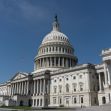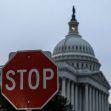A lawsuit filed by federal employee unions to stop the Trump administration from using a government shutdown to fire thousands of workers has escalated into an emergency legal battle after the White House confirmed that layoffs have begun.
The American Federation of Government Employees, two of its California locals, and the American Federation of State, County and Municipal Employees filed suit on September 30 in federal court in San Francisco. The complaint accused the U.S. Office of Management and Budget (OMB) and the U.S. Office of Personnel Management (OPM) of violating federal law by ordering agencies to prepare and issue mass “reductions in force”, known as RIFs, during the shutdown. The unions are now asking the court for immediate injunctive relief to halt the firings.
On October 10, OMB Director Russell Vought posted on X, formerly Twitter, that “the RIFs have begun.” A spokesperson for the budget office later confirmed that several agencies had issued termination notices to thousands of federal employees. According to court documents, the departments of Treasury, Health and Human Services, Education, Housing and Urban Development, Commerce, Energy, and Homeland Security, along with the Environmental Protection Agency, are among those carrying out layoffs. The budget office informed the court that, as of October 10, more than 4,000 workers had been fired and that additional RIFs were under review. White House officials have defended the decision, arguing that positions tied to programs without active funding may be permanently eliminated if they are not considered consistent with the president’s priorities.
Under the Antideficiency Act, federal agencies are prohibited from spending money or employing personnel when Congress fails to pass appropriations, except for a narrow category of work. These exceptions include activities necessary to protect human life or property, functions expressly authorized by law, or those funded through multi-year appropriations. When shutdowns occur, federal employees are either classified as “excepted,” meaning they continue working without pay until funding resumes, or “non-excepted,” meaning they are temporarily furloughed. Historically, employees who are furloughed receive full back pay once the government reopens. The practice of firing employees during a funding lapse has no precedent in modern shutdowns. The unions argue that the administration’s directive violates the Antideficiency Act because conducting and administering RIFs is not one of the permitted activities during a lapse in appropriations.
The complaint contends that OMB and OPM exceeded their statutory authority under the Administrative Procedure Act, which allows courts to invalidate agency actions that are not in accordance with law or that exceed the agency’s jurisdiction. The unions argue that OMB’s “Lapse Memorandum,” issued in late September, unlawfully instructed agencies to use the shutdown as an opportunity to consider mass layoffs for programs losing funding. The filing also challenges OPM’s updated guidance, which treated work related to administering RIFs as an “excepted” activity. Plaintiffs say that the directive directly conflicts with the Antideficiency Act and OPM’s own prior guidance, which explicitly states that reduction-in-force rules do not apply to shutdown furloughs.
After Vought’s public announcement, the unions submitted supplemental evidence to the court, including screenshots of OMB statements and agency notices confirming that layoffs were underway. They are now seeking a temporary restraining order to stop further firings while the case is pending. AFGE President Everett Kelley said the union considers the layoffs an abuse of power that undermines the statutory right of federal employees to be treated fairly during funding lapses. The government has not yet filed a detailed response to the emergency motion, but has argued in public statements that agency restructuring decisions are within executive authority.
The decision to proceed with terminations has drawn criticism from both parties. Republican Senators Susan Collins and Lisa Murkowski have publicly opposed the move, calling it punitive and unnecessary. Democratic leaders, including Senate Majority Leader Chuck Schumer and Senator Patty Murray, have argued that the administration has no legal power to fire workers during a shutdown. The government shutdown, now in its second week, continues with limited negotiations in Congress. Approximately 750,000 federal employees remain furloughed nationwide.
The court in San Francisco is expected to rule soon on the unions’ emergency motion. If granted, the order would halt the RIFs until the legality of the administration’s actions can be determined.






